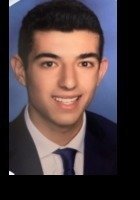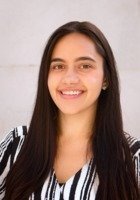Connect with hundreds of tutors like Prosper
Who needs tutoring?
FEATURED BY
TUTORS FROM
- YaleUniversity
- PrincetonUniversity
- StanfordUniversity
- CornellUniversity

Prosper
About Me
I am trained as a teacher from the Higher Teacher's Training College, Cameroon where I come from. I hold a BSc and Higher Teacher's Diploma in Chemistry. I am a graduate of Rhema Bible Training College, Broken Arrow Oklahoma with a Pastoral Diploma and I also have a Master's degree in Global Christian Leadership from South Western Christian University in Bethany Oklahoma. I plan to go for a PhD in the near future. I am also a Certified Nurse Assistant (CNA).Before moving to the United States in 2014, I have thought Chemistry in Government High School Mbu-warr in Cameroon for seven consecutive years as the lone Chemistry teacher of the school. Within this time, I built a strong experience regarding the subject matter and how to deal with students as I help them grow academically and in life as a whole. I have seen the lives of students transformed as I teach them and counsel/coach them. Many of them are now very successful and some are even tutors too. I am also good in Maths, English language, French as while as Science in general and have been assisting students in these subjects in the past. I believe that tomorrow's success is dependent upon the content and quality of teaching delivered unto the the younger generation so I take any opportunity I have to tutor very seriously because it has to do not only with the future and well being of that individual but of the nation and even the world. I believe that every student can be successful in any subject as long as they are guided by the right tutor(s).Outside of teaching, I enjoy reading and writing, and I'm also a lover of sports and politics. Above all, as a Christian, I love to use the wisdom God gives me daily to coach, encourage and bless others as they do same to me. Generally, I am a people centered person; using all I have at my disposal to make a positive difference in the lives of people daily. I also enjoy watching movies and following up happenings around the world.
Education & Certifications
Q&A with Prosper
Tutoring Subjects
Connect with a tutor like Prosper
Connect with a tutor like Prosper
Tutors with Similar Experience


